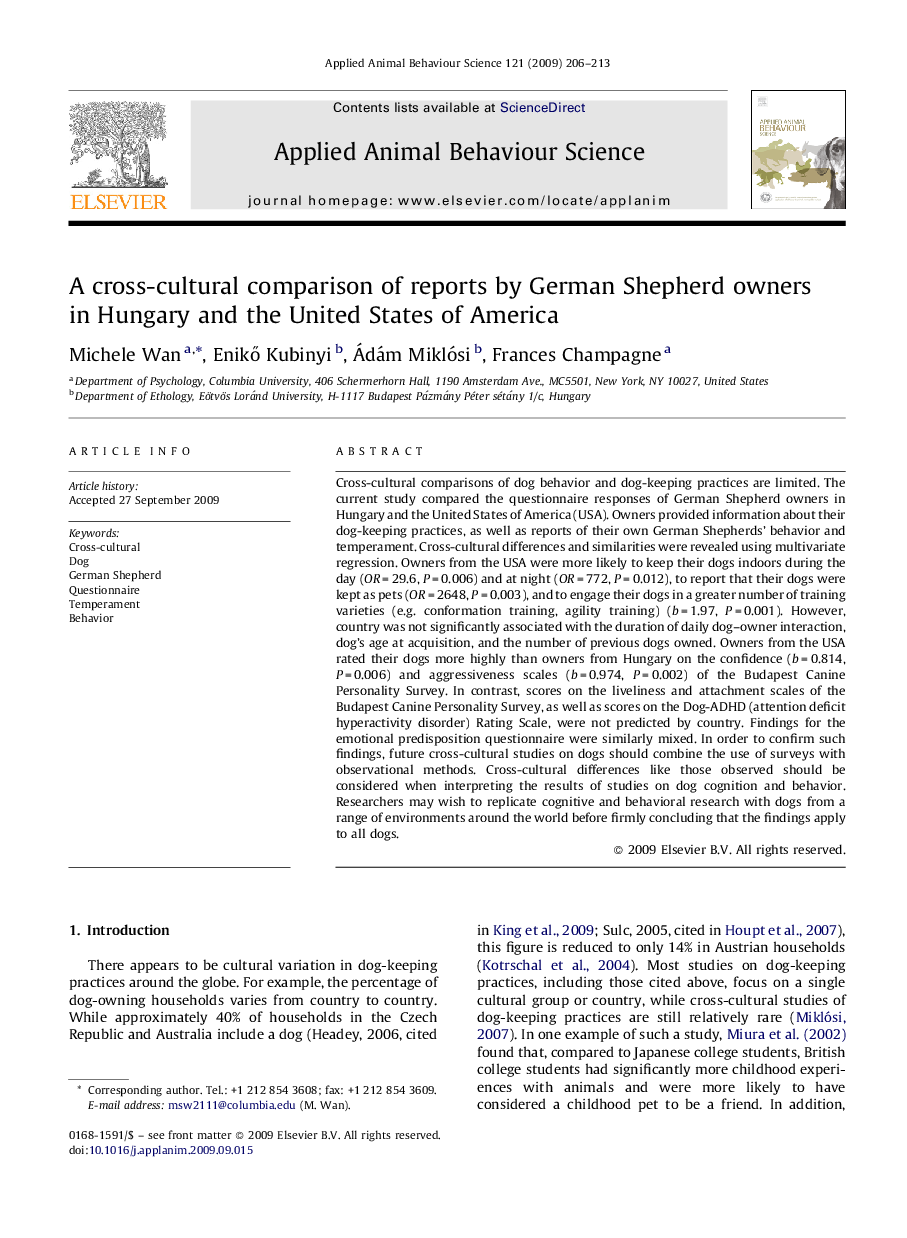| Article ID | Journal | Published Year | Pages | File Type |
|---|---|---|---|---|
| 4523343 | Applied Animal Behaviour Science | 2009 | 8 Pages |
Cross-cultural comparisons of dog behavior and dog-keeping practices are limited. The current study compared the questionnaire responses of German Shepherd owners in Hungary and the United States of America (USA). Owners provided information about their dog-keeping practices, as well as reports of their own German Shepherds’ behavior and temperament. Cross-cultural differences and similarities were revealed using multivariate regression. Owners from the USA were more likely to keep their dogs indoors during the day (OR = 29.6, P = 0.006) and at night (OR = 772, P = 0.012), to report that their dogs were kept as pets (OR = 2648, P = 0.003), and to engage their dogs in a greater number of training varieties (e.g. conformation training, agility training) (b = 1.97, P = 0.001). However, country was not significantly associated with the duration of daily dog–owner interaction, dog's age at acquisition, and the number of previous dogs owned. Owners from the USA rated their dogs more highly than owners from Hungary on the confidence (b = 0.814, P = 0.006) and aggressiveness scales (b = 0.974, P = 0.002) of the Budapest Canine Personality Survey. In contrast, scores on the liveliness and attachment scales of the Budapest Canine Personality Survey, as well as scores on the Dog-ADHD (attention deficit hyperactivity disorder) Rating Scale, were not predicted by country. Findings for the emotional predisposition questionnaire were similarly mixed. In order to confirm such findings, future cross-cultural studies on dogs should combine the use of surveys with observational methods. Cross-cultural differences like those observed should be considered when interpreting the results of studies on dog cognition and behavior. Researchers may wish to replicate cognitive and behavioral research with dogs from a range of environments around the world before firmly concluding that the findings apply to all dogs.
